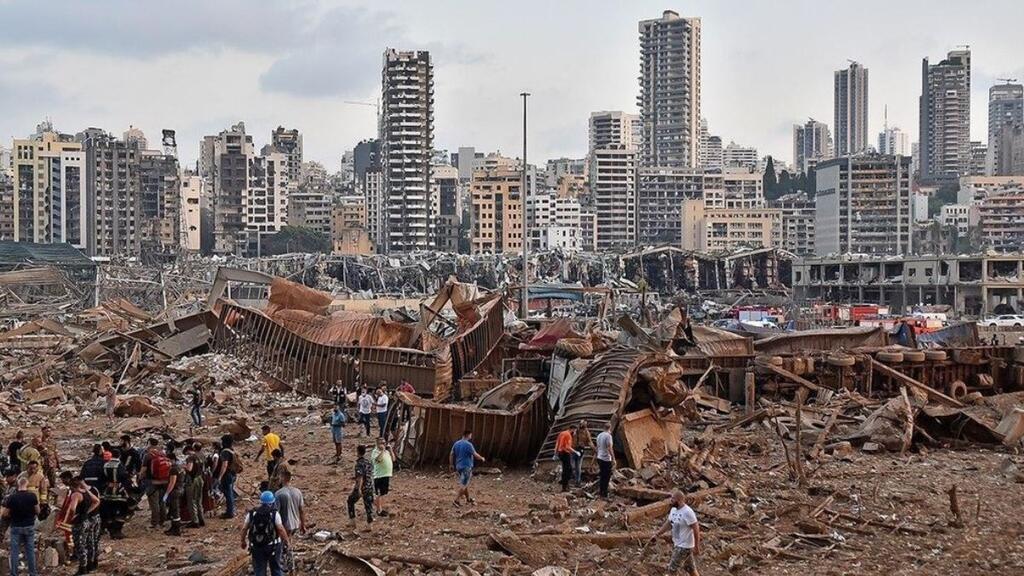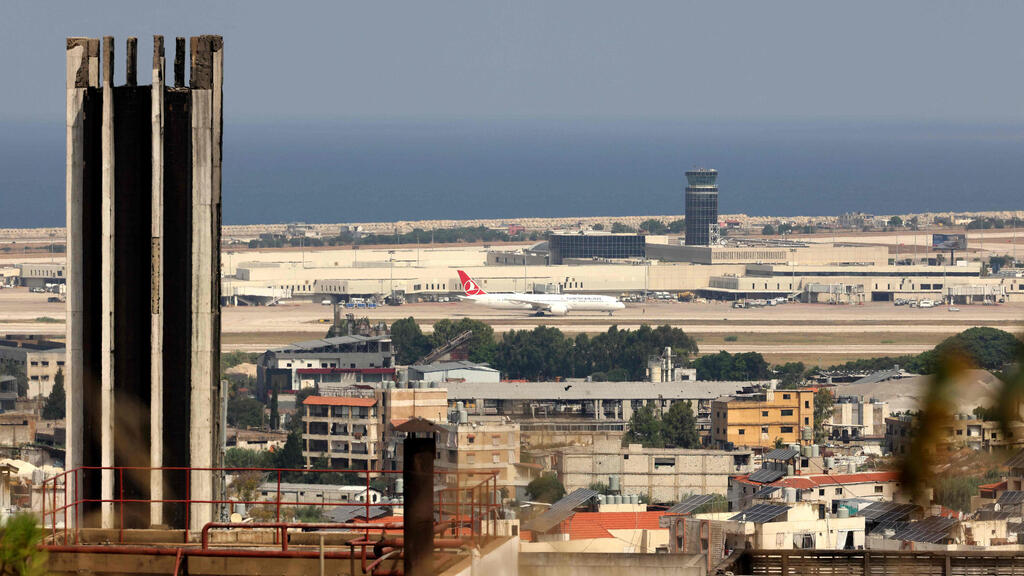Getting your Trinity Audio player ready...
While the winds of war are blowing and Defense Minister Yoav Gallant is making his way to an important visit to the United States, a British newspaper on Sunday has exposed the existence of a huge stockpile of weapons that Hezbollah is hiding at Beirut's major civilian airport.
Officials at the Beirut-Rafic Al Hariri International Airport told The Telegraph that Hezbollah receives weapons on flights from Iran to the airport in Beirut, where those weapons are stored. According to the same sources, Hezbollah stores huge amounts of Iranian weapons, missiles and explosives inside the civilian airport.
Among other things, the stockpile includes Iranian-made Falaq unguided artillery rockets, Fateh-110 short-range missiles, road-mobile ballistic missiles and M-600 missiles with ranges of over 150 to 200 miles.
Also at the airport is the AT-14 Kornet, laser-guided anti-tank guided missiles (ATGM), huge quantities of Burkan short-range ballistic missile and explosive RDX, a toxic white powder also known as cyclonite or hexagon.
The Telegraph report has caused an uproar in Lebanon and among its neighbors. Syrian military analyst Asaad al-Zoabi told the Saudi channel Al Hadath that "Iranian militias are exploiting the civilian resources of the countries - including the airports of Beirut and Damascus." According to him, "Hezbollah is indeed capable of causing trouble for Israel, but it does not have the offensive capabilities to defeat it."
At the same time, according to reports in Lebanon, the Minister of Transportation will hold an urgent press conference regarding the disclosure. In the meantime, the Qatari Al-Jazeera network published a video showing the damage to southern Lebanon following the fighting as recorded by satellite:
Satellite images reveal the extent of the damage in southern Lebanon
Damage caused to an IDF base in Kiryat Shemona by a Burkan missile strike from Lebanon
The disclosure is increasing the fear throughout Beirut and Lebanon that the airport located just four miles from the city center could become a major military target.
One airport worker told The Telegraph: “This is extremely serious, mysterious large boxes arriving on direct flights from Iran are a sign that things got worse. When they started to come through the airport, my friends and I were scared because we knew that there was something strange going on.”
The employee said that he fears that an attack on the airport or an explosion there could cause significant damage, and compared a possible explosion to the one that occurred at the port in southern Beirut in August 2020, which damaged a significant part of the city center and killed at least 218 people.
"Beirut will be cut off from the world, not to mention the number of casualties and damage," he warned. "It's only a matter of time before a disaster also happens at the airport," he said.
Hezbollah has previously been accused of storing weapons at the civilian airport in the past, but the employee - described as a whistleblower - emphasized that it has intensified since the outbreak of the war in October.
If they keep bringing in these goods I’m not allowed to check, I really believe I’ll die from the explosion or I’ll die from Israel bombing
In November, “unusually big boxes” arrived on a direct flight from Iran, a worker said. “This doesn’t happen often, but it did happen exactly when everyone in Lebanon was talking about the possibility of war,” the first worker added.
Another whistleblower claimed: “For years I have been watching Hezbollah operating at Beirut airport, but when they do it during a war, it turns the airport into a target.
“If they keep bringing in these goods I’m not allowed to check, I really believe I’ll die from the explosion or I’ll die from Israel bombing ‘the goods’. It’s not just us, it’s the ordinary people, the people coming in and out, going on holiday. If the airport is bombed, Lebanon is finished.”
Despite sanctions, the staff at the airport claim that Wafiq Safa, Hezbollah’s second in command to Secretary General Hassan Nasrallah, and married to his sister, has become a notorious figure locally.
“Wafiq Safa is always showing up at customs,” one whistleblower claimed, citing close relationships with the customs managers. “I feel like if we don’t do what they say, our families will be in danger.”
The British newspaper noted that in a city that has been suffering from an economic crisis since 2019, those cooperating with Hezbollah "walk around like peacocks", with new watches and mobile phones, and also drive new cars, according to one of the employees. “A lot of money [is] being passed under the table,” he added.
Ghassan Hasbani, the former deputy prime minister and a lawmaker for the Lebanese Forces party, said that Hezbollah's control of the airport has been a concern in Lebanon for a long time, and claimed that it is now increasing due to the area becoming a target for a potential attack in the conflict with Israel.
2 View gallery


The immediate aftermath of the devastating Aug. 2020 explosion at Beirut port
(Photo: AFP)
He called for a risk assessment at the airport due to fear of a repeat of the disaster that happened at the port in 2020. “It’s very difficult to know who can take action,” he said. “The last time the government tried to take action in 2008, there was a violent reaction by Hezbollah."
“The area all around the airport is controlled by Hezbollah so many people are concerned about passage through the airport of Beirut, which is why many Gulf countries have at times imposed bans on their citizens travelling there,” according to Hasbani. “Weapons being transported from Iran to Hezbollah across border entry points or even weapon components, endangers both the Lebanese population and the non Lebanese travelling through and living in the country.”
Taking action is all but impossible without international intervention to implement relevant UN resolutions, he emphasized. “The entrenchment of Hezbollah is everywhere, not only in the airport but in the port, the judiciary, it’s across society."
A security source at the International Air Transport Association (IATA) told The Telegraph: “We have been aware of this for years, but we are unable to do anything without international legal action. We are hand tied to do what we’d really like, which is to close the airport and have all the weapons and explosives removed.”





